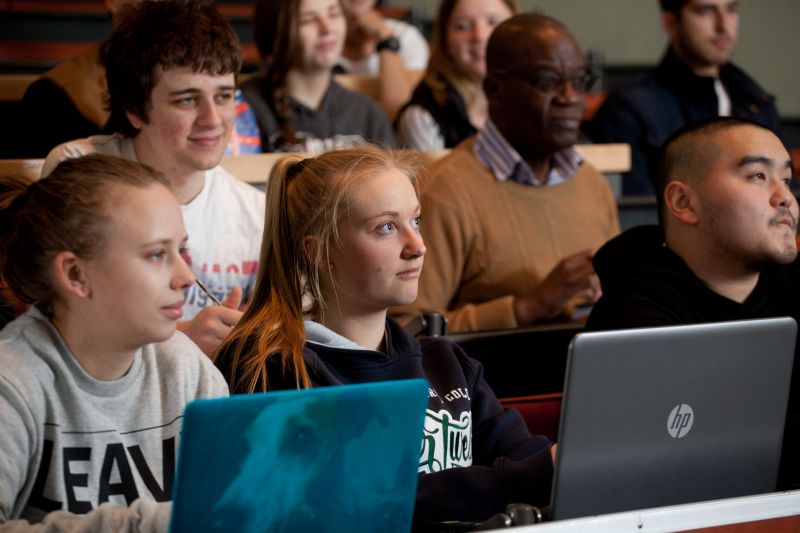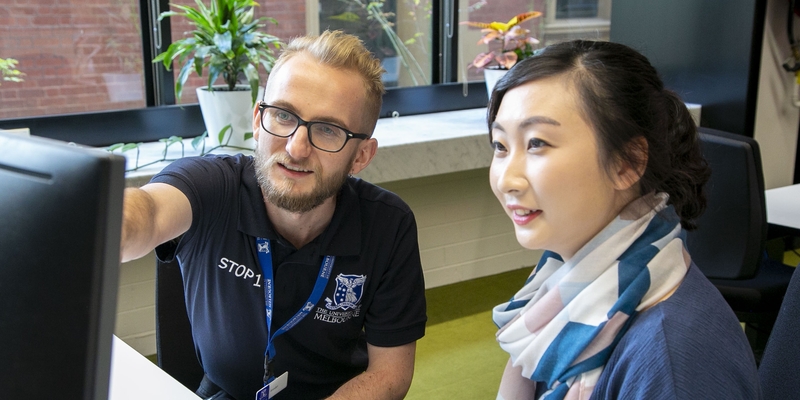Getting started
Congratulations on receiving your offer to study the Diploma in General Studies or the Diploma in General Studies (Extended)! We know that you have lots of questions about your studies and we want to ensure that you have a smooth transition to university life.
If you haven't already, make sure you accept your offer to confirm your place here and sign up to Orientation and other important events, then check out the useful resources on this page to help you in your first week of study.

Planning your course
Brief rundown of how course planning works, followed by a number of links – make sure to explain that this includes central University resources.
University of Melbourne Handbook
The University of Melbourne Handbook is the official source of course and subject information – you'll consult it every year to learn about subject prerequisites, assessment, contact hours and timetable details.
DiGS in the Handbook DiGS (Extended) in the Handbook
Q fever screening and vaccination
If you are undertaking subjects at the Dookie campus, providing evidence of Q Fever inoculation is compulsory as part of your enrolment and participation in the course. Find out how to arrange and register your vaccination before you start your study.
Stay with us in Dookie
Dookie campus is your home away from home, where you'll experience a cohesive community of peers, with supportive and inspiring teachers on hand to provide guidance.
Learn more about Dookie Accommodation at Dookie
More subject planning information
Some subjects require vaccinations and special equipment like lab equipment and PPE, while others have limited capacity – some of them are available on a "first come, first served" basis, while others have selection criteria.

Need help planning your course?
If you're having any trouble, get in touch with Stop 1 for a course planning appointment or to access the full range of student services. You're welcome to call, visit or chat online.
Studying and student life
Brief introduction to this section – again, making clear that we're linking off to a lot of central University resources.
The Learning Management System
The Learning Management System (LMS) is where you access subjects, watch lectures and submit assignments. Log in to the LMS
My.unimelb
My.unimelb is where you can access your student email, calendar and personal and enrolment details. Visit My.unimelb
Stop 1 and student services
We offer one of the most comprehensive student support networks in Australia, including health and welfare, careers and employability and administrative and learning support services and resources. Stop 1 can connect you with the full range of student services to support your success, either online or in-person.
More information about student life
-
Student life
Find out how to make your time at university the best it can be – learn about volunteering, student clubs and societies and more.
-
Build your academic skills
Studying at university requires you to think, write and demonstrate your knowledge in new and challenging ways – but there are many services available to help you do it.
-
Awards, prizes and scholarships
We are committed to recognising and supporting the academic achievement of students – and inspiring them to excel and make an impact in the world – with some of the most generous awards, prizes and scholarships in Australia.
-
Careers and future studies
Discover the careers your studies will open up, increase your employability and access additional study options and programs.
Support and contacts for students
Find contact information for a range of teams, support channels and student services from across the Faculty and the University.